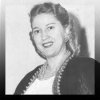In the summer of 2005 Marta was given scholarship to participate in the famous International Keyboard Institute and Festival (IKIF) in New York where she worked with concert performers such as Jerome Rose, Fabio Bidini, Dr. Dmitry Bashirov, Viktor Rosenbaum, Michael Oelbaum and Irina Morozova and she had couple of highly acclaimed performances.
Marta started her international career in her early twenties. As a solo pianist and chamber musician she received a number of first prizes in her homeland, scholarships and foreign prizes such as: the second prize at the International Competition Nikolai Rubinstein in Paris. the third prize at Carlo Ceki International Competition in Rome.
Recently the Ministry of Culture in Serbia awarded her with special scholarship for gifted young artists who are making successful solo career in the United States.
Marta recorded for radio and television In Belgrade and in Chicago. She also recorded four TV video clips with works of Chopin, Schoenberg, Ligeti and Bartok for national TV programs. They are an interesting mixture of techno sound incorporated in traditional classical piano sound. In 2002, she had a role of pianist performer of Schoenberg works and a role of main protagonist in an experimental movie. The movie was awarded the First prize at the International Festival of Short and Documentary Film in Belgrade. She has also appeared in couple of different movies during the 2005 as a performer and as an actor. Marta spent one year at the Roosevelt University in the special section called Chicago College of Performing Arts where she received a scholarship for starting Master degree in Piano Performance in the studio of well known Russian-Jewish Professor Dmitry Rachmanov: At the same time she has finished Master degree in Belgrade at the University of Art in department sponsored by European Union in the subject about Theory of Performance.
Marta lives in Miami, Florida where she has recently finished Master Program in piano performance at Florida International University in studio of well known concert performer and Professor Kemal Gekic. She received a lull scholarship for her studies. So far Marta has given more than fifty solo concerts in Europe and in her home country. She gave performances In Miami at the Yamaha Piano Music Center in February of 2007 and in the Wertheim Hall at FIU in May.
From January 2006 she played in numerous halls including Carnival Center (New Opera House) where she participated two times in the Subtropics Festival performing Cage music and in Bass Museum. where she performed Cuban and Austrian music.
In November of 2007 she appeared couple of times as a soloist with FlU Wind Ensemble. In March of 2008 Marta had highly acclaimed solo concerts in Porto Vita Villa Grande in Aventura. Steinway Gallery in Coral Gables and In Bass Museum of Art.
During 2009 among numerous recitals in South Florida back by popular demand cycle at the Bass Museum of Art, organized a special recital for Marta for 300 people.
Source: Official Web Site





